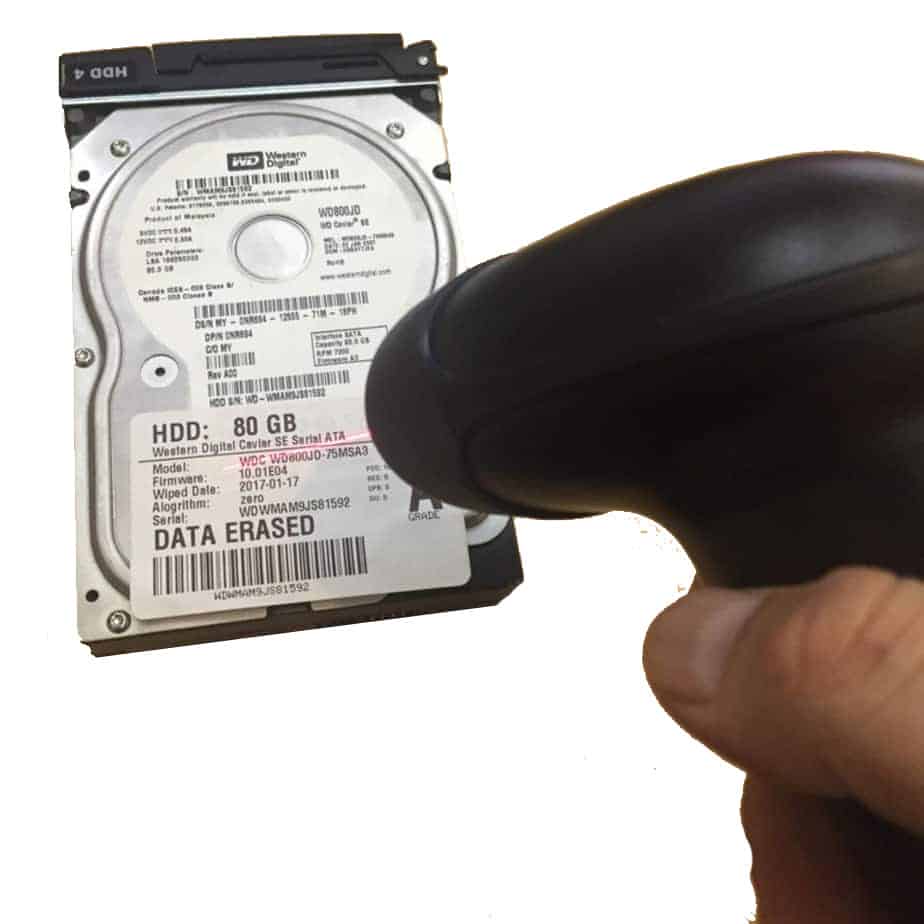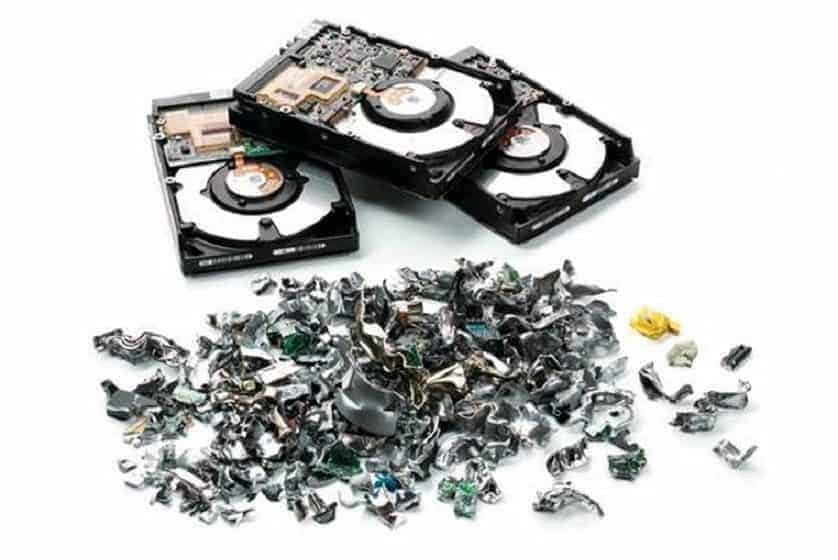The Ultimate Guide to Data Destruction and Why You Need It
Data protection should be a top priority for any business. Hackers and criminals are hidden in the shadows, ready to take advantage of huge data breaches caused by lax security measures. To avoid these security threats, you must properly destroy data that is no longer needed or required. Data destruction plays an essential role in safeguarding sensitive information from malicious actors – but how do you ensure that your processes remain secure? In this post, we’ll provide an ultimate guide to keeping your data safe through comprehensive data destruction practices. You can rest assured that your important records and documents will be completely destroyed while avoiding potential risks along the way!
An Overview of Data Destruction and Its Benefits
It is a critical aspect of information security that involves disposing off data in a manner that ensures it cannot be retrieved physically or electronically by unauthorized individuals. Data destruction is vital for several reasons, including compliance with data protection laws, safeguarding client information, reducing the risk of cyber-attacks, and protecting companies from liability issues. Moreover, data destruction promotes sustainability by reducing electronic waste and promoting responsible disposal of digital assets. However, it is crucial to note that data destruction is more than just deleting files or shredding paper; it requires a methodical approach that includes extensive planning, secure destruction methods, and proper documentation to ensure accountability. Companies that prioritize data destruction benefit from improved reputation, enhanced cybersecurity, and reduced costs associated with data breaches and legal battles. Therefore, organizations must seek professional data destruction services to guarantee optimal protection of sensitive information and promote responsible electronic waste management.
The Different Types of Data Destruction Methods
Data destruction is a critical process that helps to safeguard sensitive information from falling into the wrong hands. There are different types of data destruction methods, each with its unique benefits and drawbacks. Physical destruction, which involves shredding, burning, or pulverizing hard drives and other storage media, is a reliable way of eradicating information. However, it can be costly and time-consuming, especially for large quantities of data. Another method is degaussing, whereby high-powered magnets are used to erase data stored in magnetic media. This approach is quick and efficient, but it may not work for solid-state drives and other non-magnetic media. A third method is software-based wiping, which involves overwriting data on storage media with random characters, rendering the original information irretrievable. While it is relatively easy and cost-effective, it may not be enough to protect against sophisticated data recovery techniques. It is imperative that organizations assess their data destruction requirements carefully to choose the most appropriate method to mitigate data breaches and comply with data protection regulations.

Tips to Securely Erase Your Hard Drives
Hard drive security is an essential aspect of modern computing. It is vital that we ensure that the data on our hard drives is securely erased to avoid data breaches and cyberattacks. Sadly, deleting and formatting hard drives does not guarantee data protection. It is, therefore, imperative to follow proper procedures that guarantee data security. Encrypting data is the best way to protect it from cybercriminals, viruses, and malware. To achieve this, one can use software solutions like BitLocker for Windows, FileVault for macOS, or even TrueCrypt for encryption on cross-platforms. Additionally, for those who are about to dispose of their hard drives, it is worth considering the physical destruction of the hard drive using specialized equipment. Ultimately, implementing secure data destruction procedures gives peace of mind that your sensitive data is secure.
Protecting Your Digital Privacy with Encryption Techniques
Protecting your digital privacy has become an increasingly important concern in today’s ever-evolving technological landscape. The use of encryption techniques is one of the most effective and reliable ways to safeguard your personal information against prying eyes. Encryption works by transforming readable data into an indecipherable code, which can only be unlocked with a decryption key. Advanced encryption methods such as AES-256 and RSA-2048 are virtually unbreakable and are widely used by major organizations for securing sensitive information. Encryption techniques offer protection not only during data transmission but also during storage, ensuring that your personal data remains secure and private. It is imperative that individuals take proactive measures to protect their digital privacy, and encryption is an essential tool in doing so. By adopting encryption, users can guard themselves against data breaches, identity theft, and other online threats, and have peace of mind that their personal information is safe and secure.
How to Shred Physical Media for Maximum Security
Physical media, such as CDs, DVDs, and hard drives, contain sensitive information that can put your personal and professional life at risk if they fall into the wrong hands. To ensure maximum security, shredding physical media is an effective way to destroy all data stored on it. To begin, gather all the physical media that needs to be destroyed and ensure that they are free of any scratches or damage. Next, use a shredder specifically designed for physical media to thoroughly disintegrate them. For hard drives, use a professional magnetic degausser to erase all data. Another option is to physically destroy the hard drive by drilling holes in it or using a hammer to ensure that the data is irretrievable. It is important to remember that even a partially destroyed piece of physical media can still contain sensitive information, so it is essential to take every necessary precaution to ensure maximum security. By shredding physical media, you can rest assured that your sensitive information has been securely and permanently destroyed.
Keeping Your Cloud Storage Safe from Unauthorized Access
As the use of cloud storage technology becomes increasingly popular, ensuring security against unauthorized access is more important than ever. With sensitive and valuable data stored in the cloud, any potential breach could lead to significant financial consequences or even legal liabilities. To keep your cloud storage safe, it is essential to adopt a multi-layered approach to security, which includes robust encryption, strong password management, and regular backups. One critical aspect of securing cloud storage is to ensure that all users are thoroughly authenticated before gaining access to data. This can be achieved by adopting multifactor authentication methods, such as biometrics, for added security. In addition to this, businesses must conduct regular security audits to ensure that any vulnerabilities are identified and addressed. By adopting a comprehensive security strategy, businesses can keep their cloud storage safe from unauthorized access and protect their valuable data.
Overall, protecting your data is an important process for individuals and businesses alike. As you can see, there are plenty of measures available to safeguard your data, each with different levels of complexity. Regularly cleaning out old hard drives or shredding physical media materials will help reduce the amount of sensitive information leaking out into the world. Additionally, properly using encryption and setting up (strong) cloud security protocols will add an extra layer of protection designed to prevent unauthorized entities from accessing your electronic information. So take advantage of the tools at hand and stay vigilant about your digital security practices – it’s worth it in the long run. Don’t wait until it’s too late to protect your privacy – secure your data now!

Beyond Surplus, Electronics Recycling, IT Equipment Disposal & Data Destruction
https://www.google.com/maps?cid=14474660673037836871
1835 S Cobb Industrial Blvd SE #105, Smyrna, GA 30082
(404) 334-9789
https://www.beyondsurplus.com/


